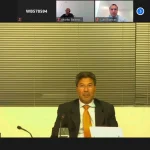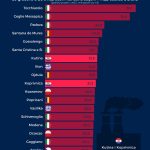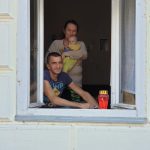
ZAGREB, June 27, 2020 – The World Bank Board of Directors on Friday approved two projects totalling $500 million to provide emergency support to the Croatian authorities to cushion the effects of the triple shock that hit the country earlier this year.
The unprecedented crisis was caused by the health impacts of COVID-19; the economic crisis caused by the pandemic lockdowns in Croatia and worldwide; and the extensive damage caused by the strongest earthquake in 140 years that hit the Zagreb area on March, 22, the World Bank Office in Croatia said in a press release.
Maric: World Bank recognises Croatian gov’t efforts, supports swift, targeted economic packages
The $300 million Crisis Response and Recovery Development Policy Operation supports the government’s swift and targeted economic packages approved in March and April 2020 to mitigate the economic and social impact of the COVID-19 crisis. It also addresses some of Croatia’s longstanding institutional gaps and builds the foundations of an inclusive and sustainable recovery.
“Economies around the world face a number of very demanding challenges caused by the pandemic. We are aware that the World Bank, as one of the leading international financial institutions, which represent an important source of liquidity, carefully selects the projects and programs it will support. Therefore, we are proud that among numerous requests, the Bank recognised the initiative and efforts of the Government of the Republic of Croatia by approving this important instrument that will contribute to strengthening the implementation of measures to deal with the current crisis,” Finance Minister Zdravko Maric said.
The first set of measures supported by this operation will mitigate the impact of the pandemic on workers and companies.
To help Croatia during the relief stage, the World Bank is supporting wage subsidies to reduce job losses and expand free health insurance coverage for the poor. It is also providing additional liquidity to firms so they remain productive through financing programs and tax relief.
The second set of measures supports inclusive and sustainable economic recovery by addressing key institutional bottlenecks.
The program promotes income support policies for elderly people without incomes, especially elderly women, and people in rural areas. The measures also include a policy and accountability framework to promote low carbon development and resilience to climate change in line with EU targets. Administrative improvements to the framework for the absorption of EU funds are also included to enhance the efficient management of EU funds.
Two loans, worth $500 million, for economic recovery, post-quake reconstruction
“The World Bank has replied positively to Croatia’s request for support by preparing two operations that are both urgent and critical, given the magnitude of the economic crisis in Croatia, further exacerbated by the earthquake. Both the Croatia Crisis Response and Recovery Program and Earthquake Recovery and Public Health Preparedness Project – worth together $500mn or 0.9 percent of Croatia’s GDP – will help mitigate the effects of the economic shock, advance recovery, facilitate earthquake reconstruction and strengthen national systems for public health preparedness for future pandemic outbreaks,” says Elisabetta Capannelli, the World Bank Country Manager for Croatia.
The $200 million Earthquake Recovery and Public Health Preparedness Emergency Recovery Project is the first big reconstruction loan for Zagreb following the devastating March earthquake.
The project will help with the reconstruction and rehabilitation of critical public services in health and education facilities. It will also help with the design of a financial support program for private housing reconstruction, to be financed through public, private, and other financiers and strengthen the institutional capacity of the national authorities to respond to future disasters and manage future risks.
The project will help the country deal with future public health outbreaks and strengthen disease surveillance systems and develop the epidemiological capacity for early detection and confirmation of diseases. It will also support the repair, rehabilitation, and reconstruction of public health laboratories, finance necessary equipment, including for active contact tracing and reporting of new cases.
Maric: Gov’t reacted swiftly, established cooperation with WB
“Faced with an extremely adverse impact of the Covid-19 pandemic on the Croatian economy and the sustainability of public finances and taking into account the significant damage caused by the earthquake, the Government of the Republic Croatia reacted swiftly and engaged early with the World Bank to provide a fast and targeted response. We appreciate the World Bank’s timely reaction and prompt preparation of this operation. The project will help restore critical public services and strengthen the future resilience of the health system. Given that the reconstruction of Zagreb will last for years, this project is a part of the wider Government’s strategy and approach towards the reconstruction of our capital”, says Maric.
The World Bank has also helped the Government to prepare a Rapid Damage and Needs Assessment (RDNA), which will be the basis for the Government’s reconstruction plan, and catalyse other sources of funds, from the EU, other International Financial Institutions and Donors/Partners, for the city’s reconstruction.
“To deal with the consequences of an earthquake in addition to a pandemic is an extraordinary feat that Croatia will have to face and for which financial, technical and advisory support will be needed from all. The Rapid Damage and Needs Assessment, that the Bank has helped prepare, will help quantify the financial impact of the earthquake. While the reconstruction will be very costly, we are confident that together with the authorities and Croatia’s partners, we can support a fast recovery,” says Capannelli.











